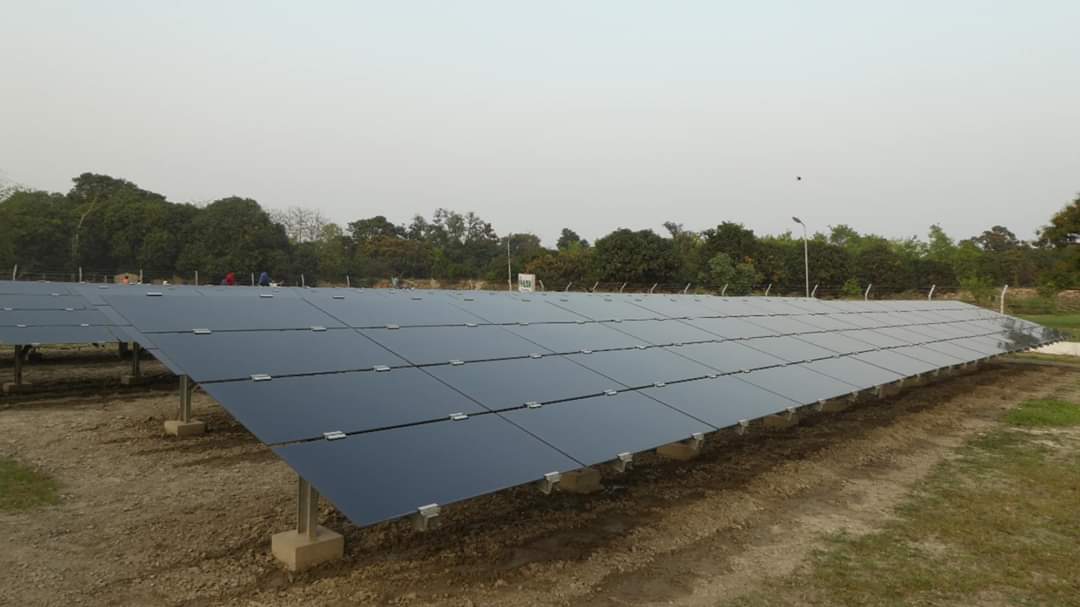Community solar minigrid operator Husk Power Systems announced this week that it has achieved profitability in Asia and Africa, the continents where it serves.
Husk Power became EBITDA positive in Q4 2022 in its two primary markets, India and Nigeria. [EBITDA (earnings before interest, taxes, depreciation, and amortization) is a widely used measure of corporate profitability.]
“Corporate profitability in India and Nigeria was achieved against a backdrop of severe market disruption caused by Covid-19, global inflation, and rising costs of capital, demonstrating the resilience of Husk’s business model,” stated the company
Husk has more than 150 minigrids in operation in the Indian states of Uttar Pradesh and Bihar, serving more than 10,000 customers. “The majority of these customers are rural businesses that previously relied on polluting and expensive diesel generators because of unreliable DISCOM power. Husk minigrids have allowed those businesses to switch to solar power, making a significant contribution to India’s energy transition goals and reducing carbon emissions. The minigrids also power schools and health clinics, contributing to the broader Sustainable Development Goal (SDG) agenda,” stated Husk.
Husk expects to grow ten-fold to more than 1,000 minigrids over the next several years in India.
Husk pioneered the rural minigrid 15 years ago using waste biomass gasification, and in 2017 followed up with the industry’s first solar hybrid minigrid. “Husk has proven that the rural minigrid business model works, in Asia and Africa, and in off-grid, under-the-grid, and grid-interconnected communities,” said board chairman, Brad Mattson. “We have already scaled 10X, and are poised to scale another 10X.”
Husk has committed to building at least 5,000 minigrids by 2030 that would impact more than 10 million people and avoid 7 megatons of carbon emissions from diesel generators.
This content is protected by copyright and may not be reused. If you want to cooperate with us and would like to reuse some of our content, please contact: editors@pv-magazine.com.









By submitting this form you agree to pv magazine using your data for the purposes of publishing your comment.
Your personal data will only be disclosed or otherwise transmitted to third parties for the purposes of spam filtering or if this is necessary for technical maintenance of the website. Any other transfer to third parties will not take place unless this is justified on the basis of applicable data protection regulations or if pv magazine is legally obliged to do so.
You may revoke this consent at any time with effect for the future, in which case your personal data will be deleted immediately. Otherwise, your data will be deleted if pv magazine has processed your request or the purpose of data storage is fulfilled.
Further information on data privacy can be found in our Data Protection Policy.